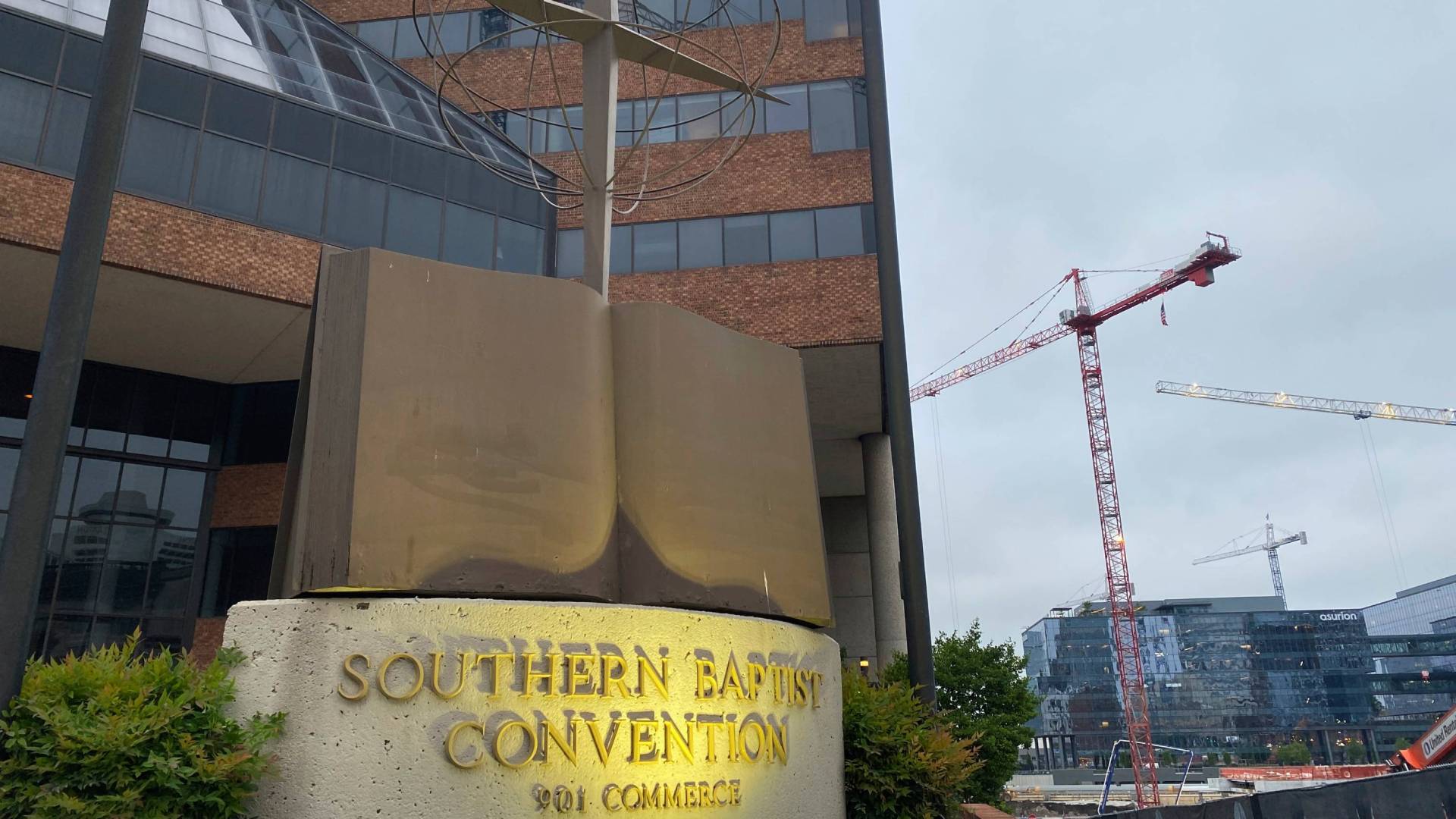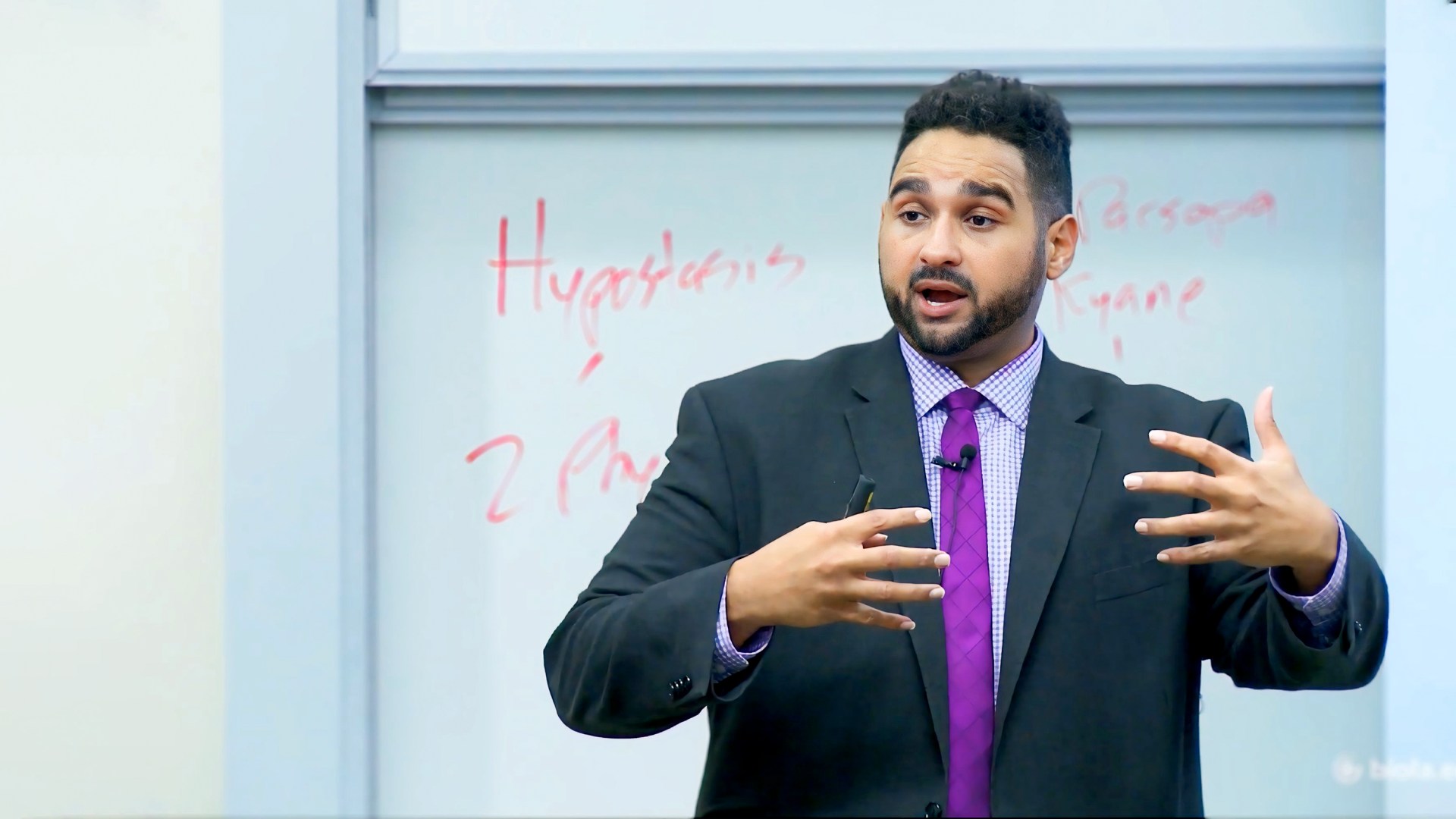C. S. Lewis wrote at the end of his book The Four Loves that he didn’t feel like he could fully express the nature of love on the page. “I dare not proceed,” he concluded.
Now one of the largest ballet companies in the United States is trying to fill in where words fall short, commissioning Four Loves by choreographer Silas Farley with a full orchestral score by composer Kyle Werner. The one-act ballet premiered at Houston Ballet over the weekend.
At a dress rehearsal before the premiere in the Houston Ballet’s lush performance space of burgundy walls, soaring ceilings, and red velvet seats, Farley sat at the tech booth watching dancers bring his vision to life, from a romantic pas de deux to a climactic final movement that features about 30 dancers.
Farley, a retired dancer with the New York City Ballet, is close friends with composer Werner. They met at church in New York City. Though the collaborators want everyone to be able to connect with Four Loves no matter their background, the ballet does depict their Christian artistic vision. As the curtain rises, three dancers are already spinning in a circle, representing the Trinitarian love of God that was active before time began.
“As Christians, we believe that the centerpiece and the starting point and the through line of all of history is the mysterious community of persons who are the Father and the Son and the Holy Spirit,” said Farley, who is the type of person who can delve into the theology of the Trinity about half a minute into conversation. “The community of love that they are from before time is what overflowed and made everything. I think we’re able to show it even more clearly than we can speak it.”
Farley was in church in Houston the Sunday before his ballet premiered. As the congregation recited the Nicene Creed, the words struck him: “We believe in the Holy Spirit, the Lord, the giver of Life, who proceeds from the Father and the Son, who with the Father and the Son is worshiped and glorified.”
“You see this in the choreography,” he said.
The Houston Ballet survived significant damage from Hurricane Harvey in 2017 and then closures during the pandemic, but it has the reputation and budget to regularly commission new works from renowned contemporary choreographers like Justin Peck.
The ballet’s artistic directors, Stanton Welch and Julie Kent (a longtime principal dancer at the American Ballet Theatre), gave Farley full freedom to do whatever he wanted—which was a ballet based on C. S. Lewis’s The Four Loves.
The text examines four classically Greek categories: storge (familial love), philia (friendship), eros (romantic love), and agape (divine love). Werner and Farley thought the four loves mapped well onto a traditional four-movement symphony, so that’s what Werner composed in the space of a few months.
In Farley’s ballet, the storge movement depicts a mother-daughter relationship, the philia movement depicts two male friends, the eros movement depicts a male and female couple, and the agape movement depicts the Trinity, bringing the loves from the other movements together. (The different persons of the Trinity also appear throughout the other movements.)
As Four Loves progresses, sky-blue and flesh-toned costumes fully transform into shades of white or brown, fabric dyed to match the dancers’ individual skin colors. Farley is in the minority in ballet as a Black dancer, and highlighting a diverse group of dancers swirling around the three figures of the Trinity was important to him.

At the Houston Ballet two days before the premiere, dancers were in the studio practicing, doing lifts and sweating through their T-shirts. Farley observed and made notes, at times demonstrating particular movements. With his background as a longtime dancer at the New York City Ballet (NYCB), Farley considers himself to be following the neoclassical tradition of NYCB founder George Balanchine, the leading choreographer of 20th-century ballet. Balanchine created a piece called The Four Temperaments.
When Farley was a dancer at NYCB a decade ago, he met Werner at Redeemer Presbyterian Church in New York. Werner had just finished a PhD at Manhattan School of Music. An early meal together stretched to three hours; the two couldn’t stop talking. They became fast friends.
“It was funny because in The Four Loves, Lewis talks about in philia, in friendship, the kind of spark of realizing a kind of common passion, of looking at someone else and being like, ‘You too?’” said Werner. “We really experienced that. … then that eventually led to this piece.”
Farley retired from the ballet in 2020 at the ripe old age of 26. Ballet is like being a professional athlete; Farley’s brother plays in the NFL, and they’ve compared notes on their vocations’ toll on their bodies. Farley now teaches ballet at Southern Methodist University and choreographs for organizations like NYCB, American Ballet Theatre, the Washington Ballet, and the Metropolitan Museum of Art. The Met commission was another piece with Christian roots: titled Songs from the Spirit, it incorporated traditional Black spirituals and new songs written by incarcerated musicians.

In Houston, as studio time wrapped up before a full dress rehearsal that evening, Farley called his dancers in close, pulling up a slideshow. He showed an image of the Pillars of Creation from the Webb telescope, one of his inspirations for the agape section, and paraphrased the Bible: “All the morning stars sing together.”
He clicked over to Rodin’s sculpture Burghers of Calais, which depicts men who are willing to die to save their village. He showed images from Henri Matisse, Hieronymus Bosch, and photographer George Platt Lynes and an altarpiece, The Trinity Adored by All Saints, which he said was crucial for the piece’s depiction of the Trinity.
“Whether you connect with the image or not … I want you to know where I was coming from and put yourselves into it,” he said. “We’re all going to dance to our very best—but it’s beyond that.”
The dancers gave him extended applause when he finished sharing.
Farley sees ballet as a way for people to glimpse the resurrected and redeemed body. It’s ordinary humans who are doing things—throwing someone in the air, standing en pointe—which most people can’t do.
“It’s like the Olympics,” he said. With a reference to another Lewis work, The Great Divorce, Farley said, “We see a body that has been trained to be more real.”
“It’s not unnatural; it’s supernatural,” he said. “The body has been cultivated to the full manifestation of its capacity.”
People should go see ballets for more ordinary reasons, Werner piped in: Enjoy ballet like a good meal. Don’t feel like you must “understand” it. Both composer and choreographer want their work to be approachable to anyone, not didactic. Farley may have shown a slideshow for the dancers in order to make his choreography more accessible—but he wouldn’t do that for an audience.
“It’s a ballet, not a lecture,” he said. “Not a sermon.”
Werner said the creators want Four Loves to make sense artistically without someone having read C. S. Lewis.
“People show up late, people come from work, they sit down, they haven’t opened the program,” Werner said. “I would like if somebody tunes in the middle of it on the radio, that they can hear it and just be moved even if they don’t know anything about this.”
Four Loves runs until September 29 at the Houston Ballet.



















































